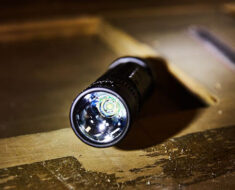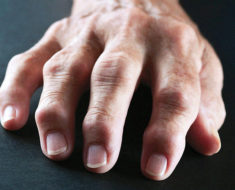
Sacramento Ear, Nose & Throat
Dysphagia, otherwise known as difficulty in swallowing, sounds terrifying and unpleasant. The truth is, it’s not something that anyone would welcome into their lives, but it is something that doesn’t have to be quite as frightening as you might think at first. The problem is there are many myths about dysphagia that can confuse and scare those who develop it, making the situation much more difficult than it needs to be. Read on to find out what some of those myths are and what the truth is behind them.
Thickened Liquids and Water
There is an idea that if you have difficulty swallowing, and your doctor has recommended a liquid diet with the added use of Simply Thick thickener to make the food you are drinking more enjoyable and easier to take, you must not also drink water.
This would actually be a dangerous thing to do and would certainly not be recommended. It could lead to dehydration, which might even mean a hospital stay in the worst cases. A doctor might, however, recommended that water is the only thin liquid you should be ingesting. The confusion might lie in the fact that for some patients, those who cough and choke as they swallow, taking water might be problematic since it is thin and can be drawn into the lungs more easily. Small sips and careful monitoring should mean that it is safe.
Ice Cream is a Safe Food to Eat
Ice cream is soft, it’s easy to swallow, and it requires no chewing. Surely it is a safe food for those with dysphagia to eat? Although it might seem that way, it could be completely the opposite, and ice cream might instead be dangerous.
If someone is unable to consume thin fluids due to aspiration, then ice cream, despite seeming like a good idea, could be problematic because it melts as soon as it enters the mouth. This means that it will often become a thin liquid before the person with dysphagia has time to swallow it (especially if it takes them a long time to swallow anything).
If the patient wants to eat ice cream, then thickening agents should be added. Some ice cream will already have this included, which means that when it melts, it forms a nectar-like consistency, which is much safer, so it pays to read the ingredients correctly.
People With Dysphagia Should Not Use Straws
When you use a straw, the fluid you are taking in is put at the back of the mouth more quickly than if you drank normally. This can be problematic for people with dysphagia. However, if the patient is unable to move food or liquid easily to the back of their throats for swallowing, as will be the case for some, a straw can be more useful than not.
In other words, the use of a straw will depend on the exact circumstances of the dysphagia suffered. This is something a medical professional will be able to give you more information about. It is certainly worth discussing the idea with your doctor rather than trying it first just in case a problem occurs.









































